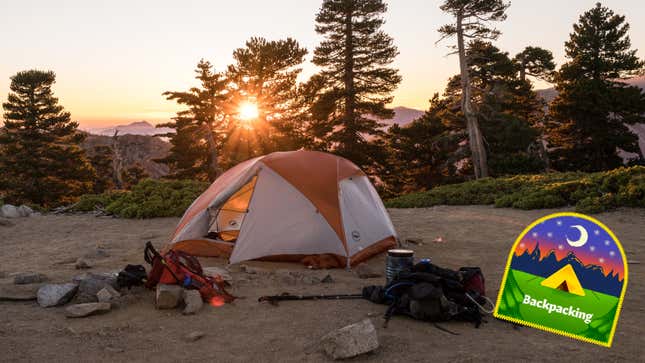
Whether you’re trying to get a friend on a multi-day trek with you for their first time ever or you’ve never slept in the woods, being comfortable on your first night in the backcountry is essential to really getting into it. With a camp kit like this, any new backpacker can sleep well and hike easy.
Sleeping Bag: Cotopaxi Sueño Sleeping Bag, $350 2lb (13 oz)
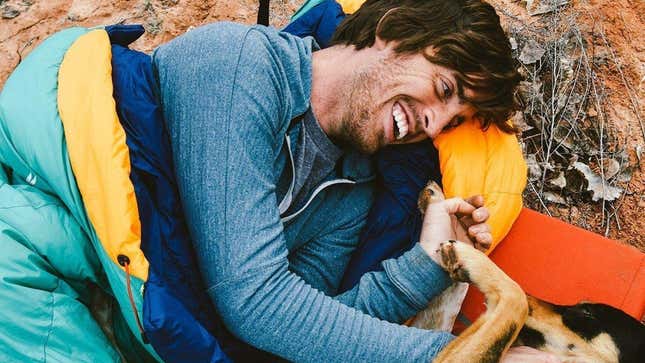
Having an appropriate sleeping bag for your size, height, and weather conditions is a puzzle that’s often more complicated than just picking one that has good reviews. What works great for me might not be comfortable for you for a variety of reasons. But one of the plushest sleeping bags I’ve ever had the pleasure of sleeping in is Cotopaxi’s Sueño bag. It’s filled with ultra-fluffy down and is roomy enough to accommodate my constant tossing and turning. On colder nights I’ve occasionally found it to be a bit too roomy, but you can solve that problem by cinching the hood tightly around your face and sleeping with extra clothes inside the bag, which has the added bonus of warming them up so you don’t have to pull on cold layers in the morning. At 2 lbs, 13 oz, it’s far from the lightest bag on the market. With a 15-degree rating, though, it will keep you warm well into fall.
If you live in a super-warm place or expect to be backpacking only in hot conditions, Therm-A-Rest’s Space Cowboy synthetic sleeping bag ($130) might be more up your alley. It has a 45-degree rating, weighs just 1 lb, 2 oz, and packs down a bit bigger than a Nalgene water bottle.
Sleeping Pad: Therm-a-Rest NeoAir Trekker, $130 (1 lb, 3 oz)
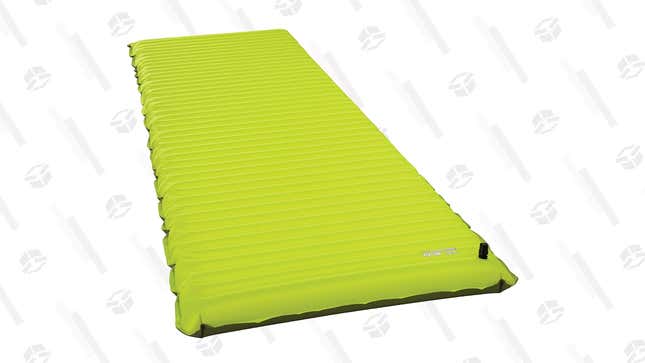
There are three main reasons why you shouldn’t skimp on a good sleeping pad: First, a good night’s sleep is key to enjoying the hiking experience. Grumpy, sleep-deprived backpackers are more susceptible to devolving all their conversations into “are we there yet?” Second, even if you sleep like a rock to the point where you can sleep on rocks, you need some insulation in the form of a sleeping pad underneath your sleeping bag so you don’t freeze on chilly nights. The warmest sleeping bag on Earth can only do so much to keep you cozy if you allow it to transfer your body heat directly into the ground.
And finally, if you take care of it, a good sleeping pad can last you decades. Buy the right one first and you’ll never have to buy another one again until you want to upgrade. Therm-a-Rest’s NeoAir Trekker is lightweight at 1 lb, 3 oz, deflates and rolls up easily (no battling air bubbles with this pad), and provides just the right amount of insulation and height off the ground.
Tent: REI Passage 2, $160 (4 lbs, 13 oz)
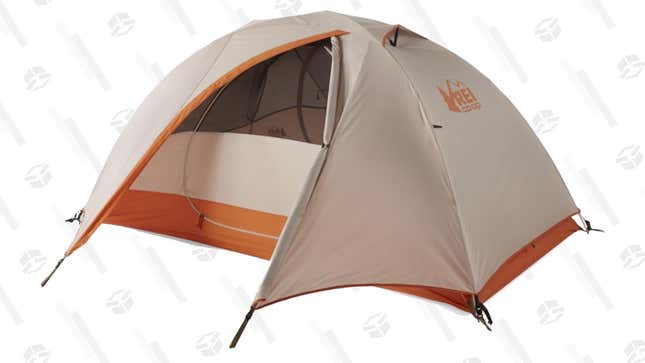
If you’re new to backpacking, leave the fancy $500+ ultralight tents to the ounce-counters who sacrifice comfort for weight at every opportunity. If you don’t know whether you like the experience of trekking into the backcountry and weathering the elements for days at a time, it’s probably not going to be an extra couple of pounds of weight that makes or breaks the trip for you. This tent from REI is on the heavier side for a backpacking tent, but it makes up for that with affordability, ease of set-up, and versatility—use it for both car camping and backcountry expeditions. It’s roomy enough to fit two adults, so you can split the weight with your hiking partner. Bonus: Generous mesh panels mean you can stargaze from your sleeping bag on warm summer nights.
Pillow: Sea to Summit Aeros Ultralight Pillow, $40 (2.1 oz)
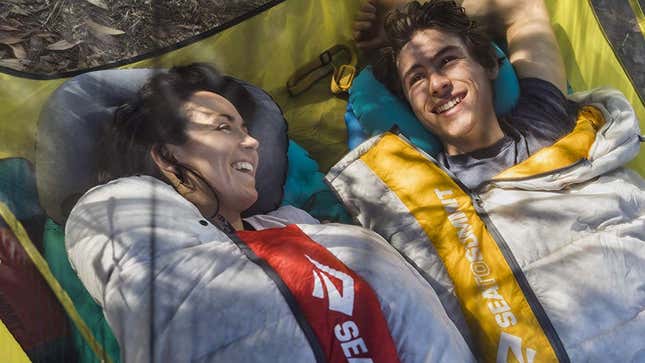
Ultralight thru-hikers who saw the handles off their toothbrushes will generally tell you that pillows are needless wastes of weight. I’m not here to tell you that they’re wrong, but I am here to say that I am often happy to carry an extra pound or two (gasp!) in exchange for a better night’s sleep. Sea to Summit’s inflatable Aeros Ultralight Pillow is about the size of a deck of cards when deflated, and the soft fabric feels way better against your skin than you’d expect it to. It’s become a non-negotiable backpacking and travel staple for me.
Backpack: Deuter AirContact Lite, $200 (3 lbs, 14 oz.)
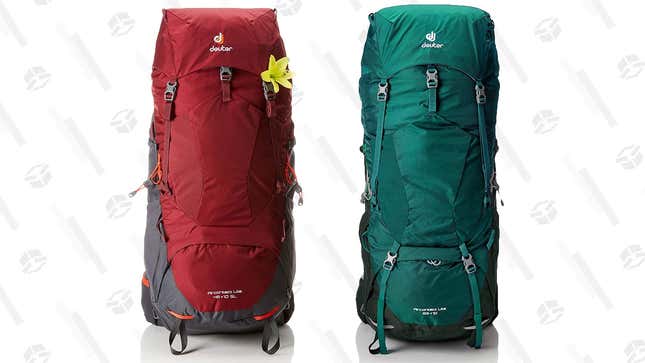
Need to have: A pack with a hip belt that positions most of your pack’s weight over your hips. Want to have: One that keeps you from breaking out into a gnarly back sweat the instant you put it on. Actually, I’d say that’s a must-have if you don’t want your first backpacking trip to involve a lot of cursing your pack.
Deuter’s AirContact pack series features a trampoline panel that provide amazing airflow and keep you from wishing you’d never set off with a portable hotel on your back. I’ve backpacked, cross-country skied, day hiked, and traveled with this pack, and it’s one of the most comfortable I’ve ever used.